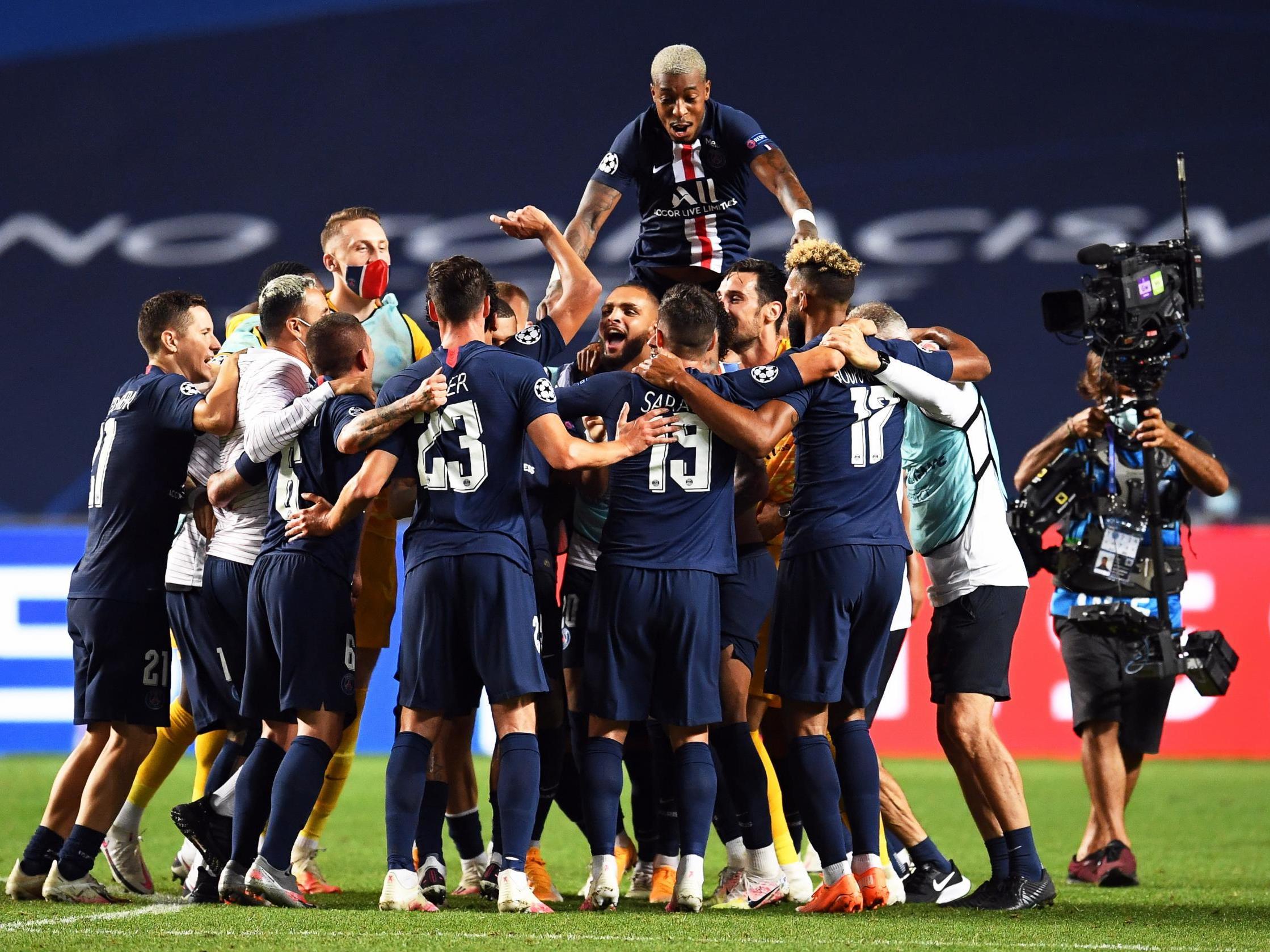PSG: Why a state-run club in the Champions League final is a landmark low for football
This weekend a state sportswashing project will use the history and prestige of the Champions League to soften its image as a prolific abuser of human rights

Your support helps us to tell the story
From reproductive rights to climate change to Big Tech, The Independent is on the ground when the story is developing. Whether it's investigating the financials of Elon Musk's pro-Trump PAC or producing our latest documentary, 'The A Word', which shines a light on the American women fighting for reproductive rights, we know how important it is to parse out the facts from the messaging.
At such a critical moment in US history, we need reporters on the ground. Your donation allows us to keep sending journalists to speak to both sides of the story.
The Independent is trusted by Americans across the entire political spectrum. And unlike many other quality news outlets, we choose not to lock Americans out of our reporting and analysis with paywalls. We believe quality journalism should be available to everyone, paid for by those who can afford it.
Your support makes all the difference.The joy of the Paris Saint-Germain players showed what a landmark moment this was for the club, but it was also a landmark moment for the game – just not one worth celebrating. Quite the opposite. It was a day to lament.
The team’s qualification for the Champions League final means a state with a hugely questionable human rights record has finally bought its way into club football’s most distinguished game, sullying it, even by the sport’s modern standards.
The great showpiece that made the legacy of so many of the game’s legends will now become a showcase for a sportswashing project, as well as a lot of what is wrong with football.
This warrants greater scrutiny and should be the context in which the match is viewed. Anything else is to facilitate sportswashing, and become part of the problem. PSG and their Qatari owners being involved in such a great game should only put the moral issues into greater focus.
One of the big objectives of sportswashing is to extend soft power while also softening a state’s image, the entertainment of the football creating a subliminal link with a benign image of that state. This is explicitly what warrants challenging, especially on a night that involves so much history and emotion, to the point it is almost impossible to think of anything else.
This match has long been planned as the grand culmination of the Qatari project with PSG. It should thereby bring the most searching questions, about everything from migrant worker deaths to a litany of human rights abuses within the state. How many migrant workers have actually died since 2012? Qatar still refuses to say.
That is why it should not just be dismissed as part of a process that has been coming a long time, even though that is true. Football’s greedy embrace of hyper-capitalism allowed it to reach a size attractive to such political interests, and to the point where the sport’s very unpredictability is being threatened.
Such processes tend to happen incrementally, and without people realising as deep changes take place. That is why you hear many say “football has always been governed by money” as if it has always been the same, even though the current degree is unprecedented in the history of the sport.
And that is why this situation – a state project being involved in the game’s greatest night – should never be normalised. It should be pointed to as the absurdity it is.
Even some of the problems for the sport are staring us in the face. Sources have told The Independent that one of the primary motivations behind the 2017 signings of Neymar and Kylian Mbappe was to “short-squeeze” the football market, and hugely inflate wages and transfer fees, because they know only clubs like Manchester City and Manchester United can compete in the medium term.
In other words, they have no problem with distorting the very parameters of the sport.
It is only Financial Fair Play that stops that, but that has seen PSG and Uefa clash before. The New York Times reported in June 2019 documents which showed “Uefa appeared to sink its own investigation” into PSG’s transfers, while the club used a technicality to avoid serious punishment and suspension from this very competition.

They have instead bent European football and its governing body to their will. They now hope its greatest fixture will be their great moment of ascendance.
It is all the sadder because of the prestige and gravitas of this occasion. This is the specific fixture that has fired so much magic of the game, as well as so many childhood imaginations, and offered its greatest moments.
Its very first images of Alfredo Di Stefano inspired everyone from Eusebio to Luis Suarez to Bobby Charlton and Sir Alex Ferguson, setting a lineage that everyone tries to live up to and become part of, that involves an authentic sporting nobility.
It hasn’t always been clean, but it has never been so sullied.
Every moment of the Champions League final is usually imbued and amplified by the knowledge of what has become before, and so much history. This weekend, a state sportswashing project will just aim to use all that, for ulterior motives.
It should be mentioned at every turn. It is not worth celebrating, and it mustn’t go unquestioned.
Join our commenting forum
Join thought-provoking conversations, follow other Independent readers and see their replies
Comments